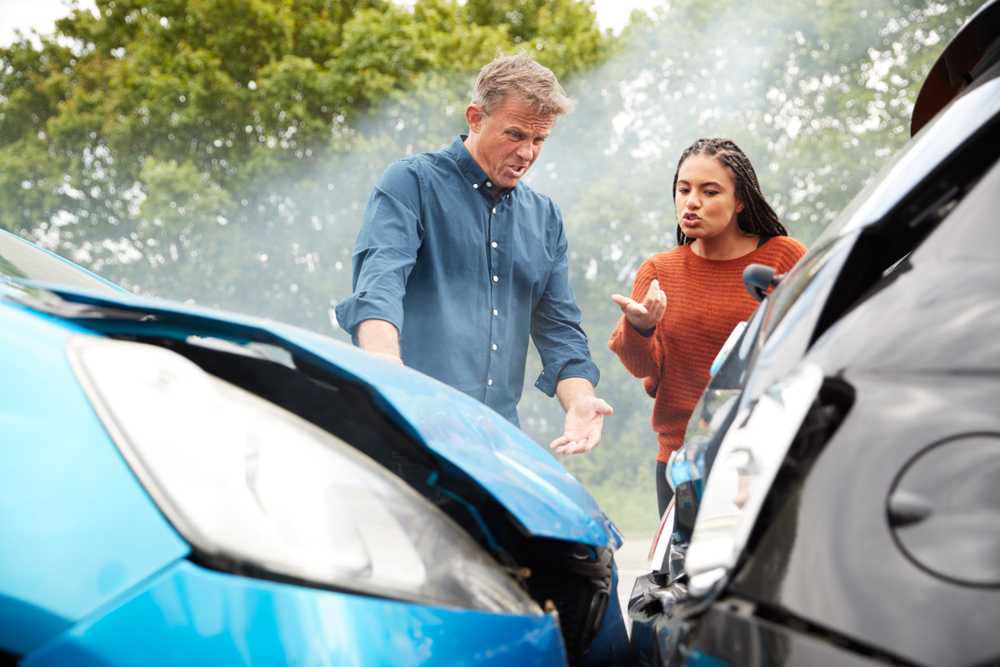Personal injury protection insurance pays medical bills for anyone who is in the car when an accident occurs, regardless of which driver caused the accident. If the total cost of medical bills exceeds the coverage of the policy, the injured person’s health insurance typically pays remaining bills.
Generally, PIP is available in no-fault states where there are no-fault, which means that each driver pays for their own medical expenses and vehicle damages. While PIP is mandatory in 13 states, it’s optional in some states and currently not available in 29 states.
Each state defines the laws in terms of right to sue and the threshold limit for suits, meaning that you can only go to court if your medical expenses from the accident exceed a specific amount. Several states, including New Jersey, Pennsylvania and Kentucky, offer policy holders the choice between no fault and ability to sue. Because PIP is very specific, it’s essential to work with a licensed insurance agent in your state to make sure you have the right PIP coverage required for your state and situation.
How Does Personal Injury Protection Work?
For example, another driver runs a red light and hits your driver’s side door as you are traveling through the green light. Both you and your passenger are taken to the hospital and treated for your injuries. You have health insurance coverage, but your friend is between jobs and does not have medical insurance. If you have PIP insurance and are in a no-fault state, your PIP insurance pays for your medical bills and all of your friend’s bills, up to the coverage amount of your insurance. Depending on your coverage, your PIP policy may also pay for time off work and other expenses incurred due to the accident.
The benefit of PIP is that the insurance company pays for the bills no matter who is at fault, which means the bills are paid in a much quicker time frame. Additionally, it limits your liability and risk if you cause an accident that injures one of your passengers. If you are in an at-fault state, your insurance company must sue the other driver to collect payment for your injuries, which is both time consuming and results in additional court cases. However, PIP insurance can be confusing since the laws vary in different states.
Policies typically have a maximum amount paid per person, and also a maximum total amount paid per accident. For the example above, we’ll say you have PIP up to $3,000 per person, but your expenses are $4,500 and your friend’s are $1,200. Your PIP policy would pay your passenger’s entire expenses and $3,000 of your expenses. Your health insurance will likely cover the remaining $1,500.
What Does PIP Cover?
- Medical expenses for people in your vehicle. Basic PIP coverage, which is what is typically required by no-fault states, pays medical expenses related to the car accident for people in your vehicle. Most policies will cover expenses such as emergency room/doctor visits, surgery, medication, equipment and rehabilitation. PIP also often covers specialists related to injuries, such as dental care and optometry. However, you should check to see what specific expenses the policy you are considering purchasing covers. Most policies also cover ambulance rides, which can otherwise be a considerable out-of-pocket expense that is not covered by some health insurance policies. Another common inclusion is home healthcare nursing services during the recovery period.
- Lost wages. Many insurers offer additional coverage, usually at a higher cost, that can cover the impact and aftermath of an accident. Reimbursement for lost wages due to the accident and recovery is one popular benefit. Other policies may pay for services that you have to hire because of your injury, such as housecleaning and childcare.
- Funeral and death expenses. If a passenger in your vehicle dies due to the accident, your PIP policy will likely pay for funeral expenses. However, the policy may cover only specific services, and policies typically include a limit for death benefits.
What Does PIP Not Cover?
Many expenses related to an accident are not covered by your PIP policy. You may need to use other insurance coverage for these costs. If these are items you need coverage for, talk with your insurance agent to determine other policies that can provide coverage.
Here are common exclusions:
- Pain and suffering. PIP does not pay for pain and suffering costs; it only pays for actual expenses related to the accident. If you want to receive payment for the emotional and physical effects of an injury suffered in an accident caused by another driver, you will need to either file suit or make the claim on their insurance, if you are in an at-fault state. You cannot claim future lost wages due to the accident on PIP, either
- Replacement or repair of vehicles or property damaged in the accident. This includes your own vehicle, as well as other vehicles damaged in the accident. If you are in an at-fault state and you caused the accident, your property damage liability coverage (which is required by law) will pay for the damages. In both at-fault and no-fault states, your collision coverage, if you have it, will cover damage to your own vehicle. Property damage, such as a fence or garage, is covered by either your property damage coverage or comprehensive coverage, depending on who is deemed at fault and your state laws.
- Funeral expenses of passengers in other cars. PIP doesn’t pay for funeral or death expenses of passengers or drivers in other cars involved in the accident. However, depending on your state, your bodily injury liability coverage may pay for these expenses.
- Medical expenses of passengers in other cars. In no-fault states, the driver’s and passengers’ medical bills are paid by the driver’s PIP. In at-fault states, the medical bills are paid by the bodily injury coverage of the driver determined to be at fault. However, the thresholds may vary by state, as does the right to sue.
FAQs About PIP
Do I need PIP if I have health insurance?
If your state requires PIP by law, then you will need to purchase PIP insurance. However, if you have health insurance coverage, you may want to purchase the minimum required by law. Be sure to look at your health insurance to determine coverage for car accidents and ambulances.
What is the difference between bodily injury and personal injury protection?
PIP covers injuries and death for yourself and other people in the vehicle you are driving in the accident, while bodily injury covers injuries only to other people (not yourself). PIP covers accidents that you cause and those that are caused by other people, while bodily injury only covers accidents where you are found at fault.
Does using PIP raise your insurance?
It depends on who is at fault for the accident. If you are at fault, your insurance rates will likely rise. If the other driver is at fault, your rates typically do not increase. However, the policy varies based on insurance company and state.

